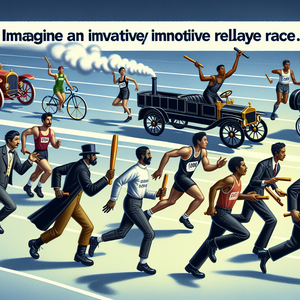The Future of Software Engineering: Trends Shaping the Industry

Artificial intelligence (AI) is rapidly becoming a cornerstone of software development. From automating mundane tasks to enhancing decision-making processes, AI is transforming how software engineers design, develop, and deploy applications. Tools powered by AI assist in code generation, testing, and debugging, significantly reducing the time and effort required for software development. For instance, platforms like GitHub Copilot and OpenAI Codex provide real-time suggestions to developers, streamlining the coding process. These tools not only enhance productivity but also help in minimizing human errors, leading to cleaner and more efficient code. Furthermore, AI's role extends beyond software development itself; it is also becoming integral to the applications being built. Software engineers are now tasked with creating systems that can learn from data and adapt over time, requiring a solid understanding of machine learning principles. Consider how companies like Google and Amazon leverage AI to personalize user experiences and improve operational efficiencies. As AI continues to permeate various industries, software engineers proficient in AI and machine learning will be in high demand, making this a critical area of focus for future professionals.
Low-Code Platforms
Another trend reshaping the software engineering landscape is the rise of low-code and no-code development platforms. These platforms allow users with minimal coding experience to create applications through visual interfaces and pre-built components. As organizations seek to accelerate their digital transformation efforts, low-code solutions enable teams to build applications faster and more efficiently while reducing the backlog for traditional developers. This trend presents both opportunities and challenges. On one hand, it democratizes software development, empowering non-technical users to participate in the creation of applications. For example, platforms like Salesforce and Microsoft Power Apps enable business analysts to automate workflows without extensive programming knowledge. On the other hand, it raises questions about the role of traditional software engineers. As low-code platforms gain traction, engineers must adapt by honing their skills in integrating these tools with existing systems and ensuring that applications built on these platforms meet quality, security, and scalability standards.
Cybersecurity
With the increasing reliance on digital solutions comes the heightened risk of cyber threats. Cybersecurity has become a top priority for organizations, and software engineers must now incorporate security practices into their development workflows. The rise of DevSecOps emphasizes the importance of integrating security measures at every stage of the software development lifecycle, rather than treating it as an afterthought. Software engineers are expected to be familiar with secure coding practices, threat modeling, and vulnerability assessments. Companies are increasingly seeking engineers who understand the nuances of cybersecurity; for instance, according to a recent report by Cybersecurity Ventures, the cybersecurity workforce gap is projected to reach 3.5 million by 2025. Additionally, as regulations such as GDPR and CCPA become more stringent, engineers must ensure that their applications comply with data protection and privacy standards. The demand for software engineers with a strong foundation in cybersecurity is expected to grow, making it essential for professionals to enhance their knowledge in this critical area.
The future of software engineering is being shaped by dynamic trends that promise to redefine the role of engineers in the tech landscape. AI integration is streamlining development processes and creating new opportunities, while low-code platforms are changing how applications are built and who builds them. Simultaneously, the emphasis on cybersecurity underscores the need for engineers to prioritize security in their work. As these trends continue to evolve, software engineers must stay informed and adaptable, developing the skills necessary to thrive in this fast-paced and ever-changing industry. By embracing these developments, aspiring and current software engineers can position themselves for success in the future of technology. As the demand for skilled software engineers continues to grow, those who invest in learning about AI, low-code platforms, and cybersecurity will be well-equipped to meet the challenges and opportunities that lie ahead. With the right skills and a proactive mindset, the future holds immense potential for innovation and advancement in software engineering.
AI Software Engineer
Google, Amazon
Core Responsibilities
Design and implement machine learning algorithms to enhance software applications.
Collaborate with data scientists to gather and preprocess data for model training.
Optimize AI models for performance and scalability in production environments.
Required Skills
Proficiency in programming languages such as Python or Java, with experience in frameworks like TensorFlow or PyTorch.
Strong understanding of statistical analysis and machine learning techniques.
Experience with cloud computing platforms like AWS or Azure for deploying AI solutions.
Common Employers
Tech giants like Google and Amazon, as well as startups focused on AI applications.
Low-Code Platform Developer
Core Responsibilities
Utilize low-code platforms to create and customize applications based on user requirements.
Integrate low-code solutions with existing systems and databases to ensure seamless functionality.
Provide training and support to non-technical users to enhance their ability to use low-code tools effectively.
Required Skills
Familiarity with popular low-code platforms such as Salesforce, Microsoft Power Apps, or Mendix.
Strong problem-solving skills and the ability to translate business needs into technical solutions.
Basic understanding of traditional programming concepts for troubleshooting and integration.
Common Employers
Companies undergoing digital transformation initiatives, including financial services firms and healthcare organizations.
DevSecOps Engineer
Core Responsibilities
Integrate security practices into the software development lifecycle, ensuring compliance with industry standards.
Conduct vulnerability assessments and implement security measures during the development process.
Collaborate with development and operations teams to automate security testing and monitoring.
Required Skills
Knowledge of secure coding practices and familiarity with security frameworks like OWASP.
Experience with CI/CD tools and scripting languages for automation (e.g., Jenkins, Bash, or Python).
Understanding of regulatory requirements such as GDPR and CCPA.
Common Employers
Organizations in finance, e-commerce, and any sector with stringent security requirements, such as banks and insurance companies.
Cybersecurity Software Engineer
Core Responsibilities
Develop and maintain secure software applications by implementing best practices in coding and architecture.
Conduct threat modeling and security assessments to identify vulnerabilities in software systems.
Collaborate with security teams to respond to incidents and improve the overall security posture of applications.
Required Skills
Strong programming skills in languages such as C++, Java, or Python, with an emphasis on secure coding techniques.
Familiarity with tools for static and dynamic application security testing (SAST/DAST).
Knowledge of network security principles and practices.
Common Employers
Cybersecurity firms, government agencies, and any organization prioritizing information security.
Cloud Application Architect
Core Responsibilities
Design scalable and resilient cloud-native applications leveraging platforms like AWS, Azure, or Google Cloud.
Collaborate with cross-functional teams to define architectural standards and best practices for cloud development.
Evaluate and recommend cloud services and technologies to optimize performance and cost.
Required Skills
Expertise in cloud architecture and services, including serverless computing and microservices.
Strong programming skills and experience with containerization technologies such as Docker and Kubernetes.
Understanding of CI/CD pipelines and DevOps practices for cloud application deployment.
Common Employers
Large tech companies and enterprises transitioning to cloud-based infrastructures across various industries.


